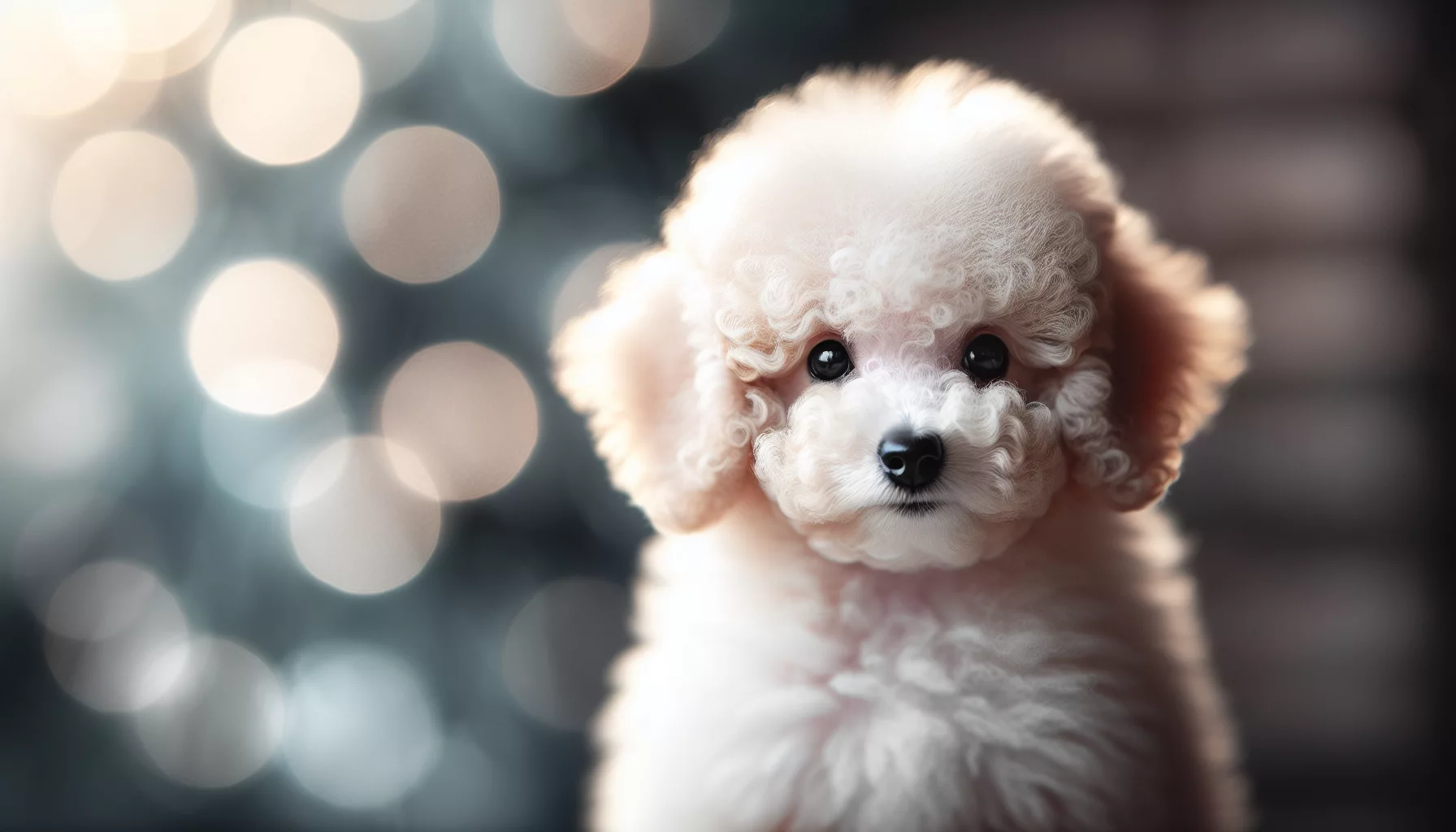Why Do Yorkshire Terriers Smell? Explore the factors behind their distinct odor & learn how to prevent & manage it effectively. Keep your furry friend smelling fresh!
Have you ever wondered why Yorkshire Terriers tend to have a distinct odor? In this article, we uncover the reasons behind this seemingly common trait in these adorable little dogs. From their unique coat to their natural body chemistry, we will explore the factors that contribute to the intriguing scent of Yorkshire Terriers. So, if you own one of these lovable creatures or simply find yourself curious about their distinct aroma, keep reading to unravel the mystery of why Yorkshire Terriers smell.

Causes of Yorkshire Terriers’ Odor
Yorkshire Terriers are known for their beautiful silky coats and lively personalities. However, if you own a Yorkshire Terrier, you may have noticed that they have a distinctive odor. This can be unpleasant and can make it difficult to enjoy your time with them. But why do Yorkshire Terriers smell? There are several factors that contribute to their odor, ranging from natural body odor to specific health issues. In this article, we will explore the main causes of Yorkshire Terriers’ odor and provide tips on how to prevent and manage it effectively.
1. Natural Body Odor
As with any living being, Yorkshire Terriers have their own natural body odor. This distinct smell, which varies from dog to dog, is influenced by a combination of factors including the sebaceous glands, diet, and sweat glands.
1.1. Sebaceous Glands
Sebaceous glands are tiny glands in the skin that produce sebum, an oily substance that helps keep the skin and fur moisturized. In some Yorkshire Terriers, these glands can become overactive, resulting in an excessive production of sebum. This can lead to a greasy coat and a stronger odor.
1.2. Diet and Digestion
What your Yorkshire Terrier eats can also impact their body odor. A poor-quality diet or digestive issues can cause an imbalance of nutrients and result in an unpleasant smell. Additionally, certain foods can contribute to bad breath, which can add to the overall odor.
1.3. Sweat Glands
While dogs primarily cool themselves down by panting, they do have sweat glands in their paw pads. These sweat glands can release a mild odor, especially when your Yorkshire Terrier becomes anxious or stressed.
1.1. Sebaceous Glands
One of the main contributors to Yorkshire Terriers’ natural body odor is the overactivity of their sebaceous glands.
1.1.1. Overactive Sebaceous Glands
When the sebaceous glands produce an excessive amount of sebum, it can make your Yorkshire Terrier’s coat appear greasy and emit a stronger odor. This can be more noticeable in areas such as the face, ears, and the base of the tail.
1.1.2. Poor Grooming Habits
Another factor that can exacerbate the odor from the sebaceous glands is poor grooming habits. Regular brushing and bathing are essential for removing excess sebum and keeping the coat clean. Neglecting grooming can lead to a buildup of oils, resulting in an unpleasant smell.
1.1.3. Moisture Retention
Moisture retention in the fur can also contribute to the odor from the sebaceous glands. If your Yorkshire Terrier’s coat becomes damp and is not thoroughly dried, it creates an ideal environment for bacteria and yeast to thrive. This can worsen the odor and potentially lead to skin infections.
1.2. Ear Infections
Ear infections are a common issue among Yorkshire Terriers and can be a significant cause of their odor. The structure of their ears, with long hair and floppy ears, creates a warm and moist environment that is prone to bacterial or yeast overgrowth.
1.2.1. Common Causes
Ear infections in Yorkshire Terriers can be caused by factors such as allergies, excessive earwax buildup, or the presence of foreign objects. Additionally, poor ventilation and inadequate drying after bathing can contribute to the development of ear infections.
1.2.2. Symptoms of Ear Infections
If your Yorkshire Terrier has an ear infection, you may notice symptoms such as redness, swelling, a foul odor, frequent scratching or head shaking, and discharge from the ears. These infections can be uncomfortable and painful for your furry friend.
1.2.3. Proper Ear Care
To prevent and manage ear infections, it is crucial to establish a regular ear care routine for your Yorkshire Terrier. This includes cleaning the ears with a veterinarian-recommended solution, keeping the ears dry, and seeking veterinary attention if you notice any signs of infection.
1.3. Dental Problems
Poor oral hygiene can also contribute to the smell of Yorkshire Terriers. Dental problems such as tartar and plaque buildup, dental diseases, and gum infections can lead to bad breath and an unpleasant odor.
1.3.1. Tartar and Plaque
Tartar and plaque are caused by the accumulation of bacteria, food particles, and saliva on your Yorkshire Terrier’s teeth. Over time, this buildup hardens and can lead to gum inflammation, tooth decay, and a distinct odor.
1.3.2. Dental Diseases
If dental issues are left untreated, they can progress into more severe dental diseases such as periodontal disease. This can cause pain, tooth loss, and an odor resulting from the infection and decay in the mouth.
1.3.3. Regular Dental Care
Maintaining a regular dental care routine for your Yorkshire Terrier is essential for preventing dental problems and minimizing odor. This includes brushing their teeth regularly with a dog-specific toothpaste, offering dental chews or toys to promote natural cleaning, and scheduling professional dental cleanings with a veterinarian when necessary.
1.4. Skin Conditions
Yorkshire Terriers are susceptible to various skin conditions, which can contribute to their odor. Common skin issues include allergies, yeast infections, and dermatitis.
1.4.1. Allergies
Yorkshire Terriers can develop allergies to certain foods, environmental allergens such as pollen or dust mites, or even components in grooming products. Allergic reactions often result in skin irritation, itching, redness, and an unpleasant odor.
1.4.2. Yeast Infections
Yeast infections can occur in the skin folds, ears, or paws of Yorkshire Terriers. These infections are often accompanied by a yeasty or pungent odor and can cause itching, redness, and discomfort for your furry companion.
1.4.3. Dermatitis
Dermatitis refers to inflammation of the skin, and Yorkshire Terriers can be prone to different types, including atopic dermatitis and contact dermatitis. These conditions can result in an odor and various skin symptoms such as redness, rashes, and dry, flaky skin.
1.5. Anal Gland Issues
The anal glands in Yorkshire Terriers can also be a source of odor. These small sacs, located on either side of the anus, secrete a foul-smelling substance that is usually expressed naturally during bowel movements.
1.5.1. Anatomy of Anal Glands
The anal glands are situated in the lower part of the rectum and are responsible for marking territory and providing scent communication for dogs. However, in some cases, these glands can become problematic and result in an unpleasant odor.
1.5.2. Impacted or Infected Anal Glands
If the anal glands do not empty properly or become impacted, it can lead to discomfort, pain, and a strong odor. In some cases, the glands can also become infected, causing further complications and increasing the foul smell.
1.5.3. Expressing Anal Glands
To prevent issues with anal glands, regular expression is necessary. While some dogs can naturally express their anal glands, Yorkshire Terriers often require manual gland expression. This procedure should only be performed by a professional, such as a veterinarian or a groomer, to ensure proper technique and hygiene.
2. Preventing and Managing Odor in Yorkshire Terriers
While Yorkshire Terriers may naturally emit an odor, there are several measures you can take to prevent and manage it effectively. By implementing the following practices, you can help keep your Yorkshire Terrier smelling fresh and clean.
2.1. Regular Bathing
Regular bathing is essential for maintaining good hygiene and controlling odor in Yorkshire Terriers. Here are some key factors to consider:
2.1.1. Choosing the Right Shampoo
Selecting a mild, hypoallergenic shampoo formulated specifically for dogs is crucial. Avoid using harsh or scented shampoos that can further irritate the skin and coat. Consult with your veterinarian to find the most suitable shampoo for your Yorkshire Terrier.
2.1.2. Frequency of Baths
Yorkshire Terriers generally require bathing every two to four weeks, depending on their individual needs. Over-bathing can strip the coat of essential oils, leading to dryness and potential skin issues. Under-bathing, on the other hand, can result in an accumulation of oil and dirt, exacerbating odor problems.
2.1.3. Drying the Coat
Thoroughly drying your Yorkshire Terrier’s coat after bathing is crucial to prevent moisture retention and potential skin infections. Use a towel or a hairdryer set to a low heat and speed setting to ensure the coat is completely dry, especially in areas prone to odor, such as the face, ears, and tail.
2.2. Proper Grooming
Regular grooming is essential for maintaining a healthy coat and managing odor. Here are some grooming tips for your Yorkshire Terrier:
2.2.1. Brushing
Regular brushing helps remove excess hair, distribute natural oils, and prevent matting. Brushing at least a few times a week is recommended for most Yorkshire Terriers, although those with longer coats may require daily brushing to prevent tangles and mats.
2.2.2. Trimming
Regular trimming of the fur around the face, paws, and tail can help prevent moisture retention and odor buildup. Pay special attention to the hair around the ears, as it can contribute to ear infections if not kept adequately trimmed.
2.3. Balanced Diet
Providing a balanced and nutritious diet is vital for your Yorkshire Terrier’s overall health and can positively impact their body odor. Consider the following dietary factors:
2.3.1. High-Quality Food
Choose a high-quality dog food that is appropriate for your Yorkshire Terrier’s age, size, and specific dietary needs. Look for formulas that contain real meat as the main ingredient and avoid artificial additives, fillers, and by-products.
2.3.2. Digestive Health
Ensure your Yorkshire Terrier’s digestive system is functioning optimally. Incorporate probiotics or a digestive enzyme supplement into their diet if recommended by your veterinarian. These can help promote healthy digestion, minimize gas, and reduce odor.
2.4. Dental Care Routine
Maintaining good oral hygiene is crucial for preventing dental problems and bad breath in Yorkshire Terriers. Follow these dental care practices:
2.4.1. Brushing Teeth
Brush your Yorkshire Terrier’s teeth regularly using a dog-specific toothpaste and a soft-bristled toothbrush. Start by introducing them to the process gradually, using positive reinforcement to make it a positive experience for both of you.
2.4.2. Dental Chews and Toys
Provide dental chews or toys that promote natural chewing and help remove plaque and tartar buildup. Consult with your veterinarian to choose appropriate products for your Yorkshire Terrier, considering their size, age, and dental health.
2.5. Checking Ears Regularly
Regularly inspecting your Yorkshire Terrier’s ears is important for early detection and prevention of ear infections. Here’s what you should do:
2.5.1. Visual Inspection
Check your Yorkshire Terrier’s ears for redness, swelling, discharge, or foul odor. If you notice any abnormalities, consult with your veterinarian for further evaluation and appropriate treatment.
2.5.2. Gentle Cleaning
Use a veterinarian-recommended ear cleaning solution and a soft cloth or cotton ball to gently clean the outer ear. Avoid inserting anything deep into the ear canal, as this can cause damage. Only clean the visible parts of the ear.
2.6. Skin Care
Proper skin care is essential for managing skin conditions and minimizing odor in Yorkshire Terriers. Consider the following practices:
2.6.1. Allergen Management
If your Yorkshire Terrier has allergies, try to identify and minimize exposure to the allergens causing the reaction. This may involve dietary changes, using hypoallergenic grooming products, and reducing exposure to environmental allergens.
2.6.2. Regular Moisture Control
Ensure your Yorkshire Terrier’s coat and skin stay dry to discourage the growth of bacteria and yeast. Pay attention to areas prone to moisture retention, such as skin folds, ears, and paw pads, and keep them clean and dry.
2.7. Anal Gland Maintenance
Proper anal gland maintenance is crucial for preventing discomfort and odor related to anal gland issues. Here’s what you need to know:
2.7.1. Regular Vet Check-ups
Schedule regular veterinary check-ups to have your Yorkshire Terrier’s anal glands examined and expressed if necessary. Your veterinarian can determine the appropriate frequency for expression based on your dog’s unique needs.
2.7.2. Proper Stool Consistency
Ensure your Yorkshire Terrier’s stool consistency is neither too hard nor too soft. Firm but not dry stools can help stimulate natural expression of the anal glands during bowel movements.
2.7.3. Anal Gland Expression
If your Yorkshire Terrier is prone to anal gland issues, consider having a professional, such as a veterinarian or groomer, regularly express the anal glands. This should be done with caution and under professional guidance to prevent injury or infection.
In conclusion, there are various factors that contribute to the odor in Yorkshire Terriers. While some of these causes, such as natural body odor, are inherent to the breed, others can be managed or prevented. By implementing proper grooming practices, maintaining a balanced diet, addressing dental and skin issues promptly, and ensuring regular veterinary care, you can keep your Yorkshire Terrier smelling fresh and healthy. Remember, if you have any concerns about your dog’s odor or overall well-being, it is always best to consult with your veterinarian for guidance and personalized advice.





